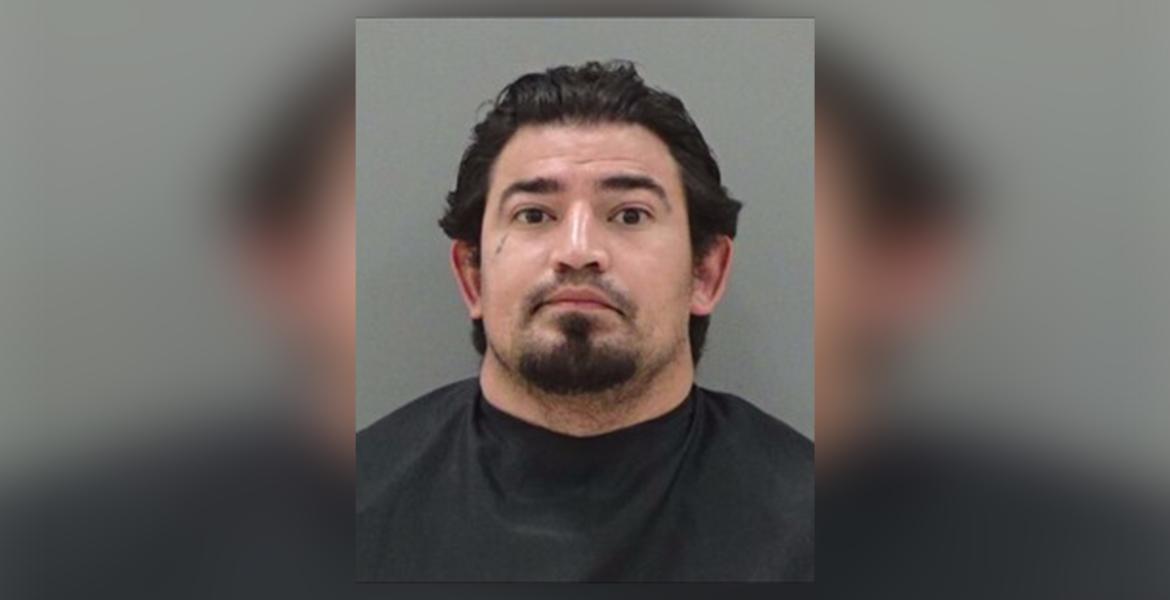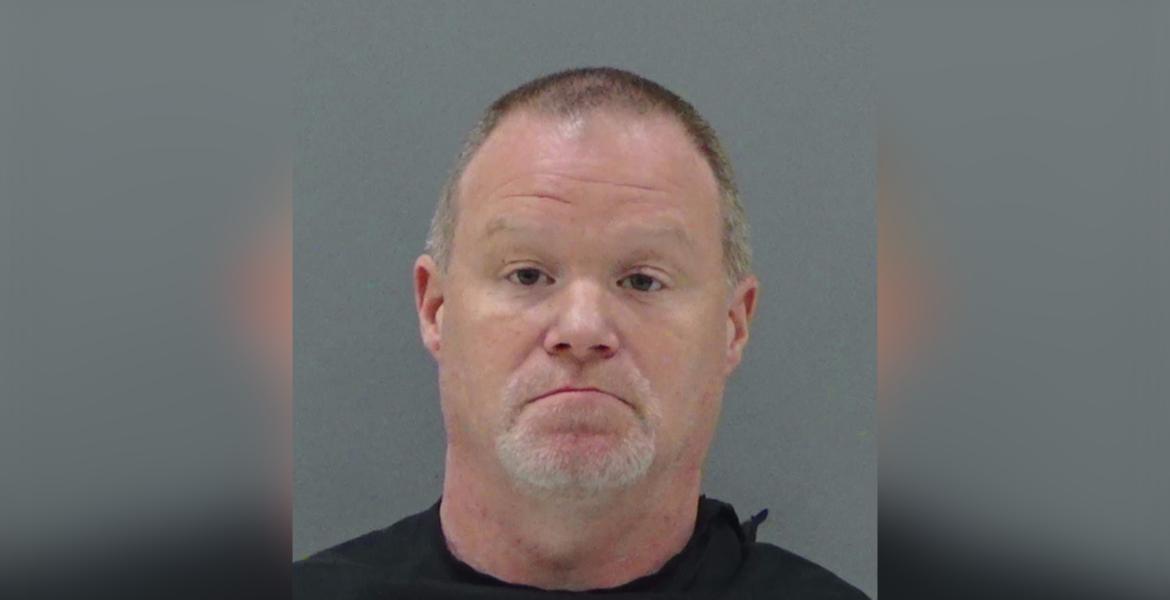“He looked at me,” Karen Freeman said as she walked out of Judge Tom Gossett’s courtroom on Tuesday. Her blue-green eyes were wide and fierce. Unblinking, she looked as close to a fit of rage as one can get without coming apart at the seams, her jaw clinched and her chin slightly wavering.
It was the first time the now childless mother had set her eyes on her daughter’s accused killers, and as he looked back away, she thought, ‘he has no remorse at all’.
In a speedy pre-trial hearing held at just before 2 p.m., Daniel Uvalle said he didn’t quite understand why he was being charged with the capital murder of multiple persons when the judge read out the defendant’s indictment.
Uvalle, 18, is accused of holding four 20-somethings hostage while wearing a bullet-proof vest as 19-year-old Johnny Garcia fired shotgun shells at 22-year-olds Tabitha Freeman and Alvaro Carillo, brutally executing both on Sept. 1, 2013. Due to his role in the crime, Uvalle’s been charged as if he pulled the trigger.
After some quiet clarification, the attorneys for the defense and state took up matters before the court, setting a definitive trial date at Feb. 17, and scheduling another pre-trial hearing for the 11th. The trial is anticipated to last four days.
At the moment, 119th District Attorney Allison Palmer has offered Uvalle a plea bargain, but as of yet he has not accepted. The deal will only remain on the table until the next hearing on Feb. 11, she cautioned.
The particulars of the plea were not discussed.
A recent motion to join Uvalle’s and Garcia’s cases was denied by Judge Gossett. Uvalle is being represented by attorneys Melvin Gray and Fred Brigman; Garcia is being represented by John Young and Theodore “Tip” Hargrove.
At the conclusion of Uvalle’s pre-trial, he was escorted across the street to the county jail, where he has remained since he was arrested on the day of the incident. Further down the hall in courtroom A, his co-defendant awaited his pre-trial, among the shuffle of lawyers and prisoners who had hearings set at 2 p.m.
Karen Freeman waited anxiously as Judge Barbara Walther called name after name on the docket, occasionally turning to glance at the rows of men in orange, green and striped jumpsuits seated at the back of the courtroom.
As the court cleared and the attorneys took their seats before the bench, Johnny Garcia sauntered up to the front, chains rattling.
“These are just kids!” Freeman exclaimed in a loud whisper. Garcia, standing a whole five feet tall and bearing the shameful expression of a pudgy teenager, took a seat next to Tip Hargrove.
Before the hearing could commence, a hushed discussion broke out at the defense table, where Garcia sat shaking his head in defiance as he appeared to be getting scolded by Hargrove.
Bits of discourse rose above the whispers, and it became apparent that Garcia had claimed he didn’t know what was going on and that he had been insistent on a line of defense that wasn’t legally possible. He’d picked up the legal tip while in jail.
When Judge Walther re-entered the courtroom and both sides declared themselves ready, the hearing began by pressing for a date for eventual trial.
At a previous hearing in October, when Young took over the case from the regional public defender’s office, he anticipated he could be ready for trial as early as February.
Having begun the work of sifting through the information gathered by the Public Defender’s Office and the information from the district attorney, Young explained now that a trial in two weeks would no longer be possible.
“Judge, we’re still trying to download and assemble information,” he said, explaining that he hadn’t anticipated a volume of documents including 123 gigabytes from the district attorney and another 130 gigs on the public defender’s Dropbox.
To compound the issue, he explained, none of the documents that are present in both files are on the same numbering system, meaning that locating duplicates is as arduous as sorting the files themselves. He also noted issues with his client.
“Garcia is proving to be a—“ he paused, “time consuming client in terms of his willingness to understand certain things.”
After Young had explained his reasons for seeking an extension until trial, he announced that Garcia had something he wanted to tell the judge.
Vocalizing his dissatisfaction with Young and Hargrove, Garcia stood and told Walther, “They’re automatically saying ‘Oh, you’re guilty. You’re this. You’re that,’” Garcia said. “I understand I wrote letters, but I don’t think I’m being represented right.”
Having heard his complaint, judge Walther responded at length, using basic terms in place of legalese and explaining the evolution of Garcia’s defense and the reasons for the decisions his counsel make.
“I understand that folks that are in custody, their lawyers are their link to the outside world. But you need to understand that they’re not just there for handholding,” she said, describing attorneys’ duty to evaluate the facts and circumstances of the case and seek the best legal defense.
Garcia nodded slowly and hung his head as he was told to sit, then began to quietly cry and wipe his tears with chained hands.
Due to the large amount of information still needing to be scrutinized, the need for a psychological evaluation on the defendant, and the potential need for testimony transcription from Uvalle’s case, Judge Walther scheduled Garcia’s trial for May. Another pre-trial hearing will be held on March 10 at 9:30 a.m.
Following the hearing, Karen Freeman expressed relief that the cases are moving ahead, even if Garcia’s trial will be later than anticipated.
“Nothing is going to bring her back, but I just want the satisfaction of looking them straight in the eye, and I’m very pleased that finally, the 17th of this month, we’re going to have at least one trial,” she said.
“I feel like I’m being imprisoned and I’m being tortured and penalized. It’s hard enough without having some sort of closure. I want to hear those words ‘guilty’. And I want to be able to say my piece.”
Since Uvalle and Garcia were indicted, Freeman has marched in front of the courthouse on hearing dates, birthdays and anniversaries, carrying colorful poster boards with pictures of her daughter, and demanding “Justice for Tabi”.
She’d never been to a hearing or seen the two accused of killing Tabitha before Tuesday, and said that the “boys” she saw were not the hardened criminals she had imagined over the past year and three months.
“To think, just the way they’re so indignant and self-absorbed, I was just amazed at that,” she said of their character in court. “I don’t understand that mentality, but I don’t understand the mentality of someone that would shoot and kill somebody either…but I’m going to get my baby girl justice.”
Subscribe to the LIVE! Daily
Required






Post a comment to this article here: